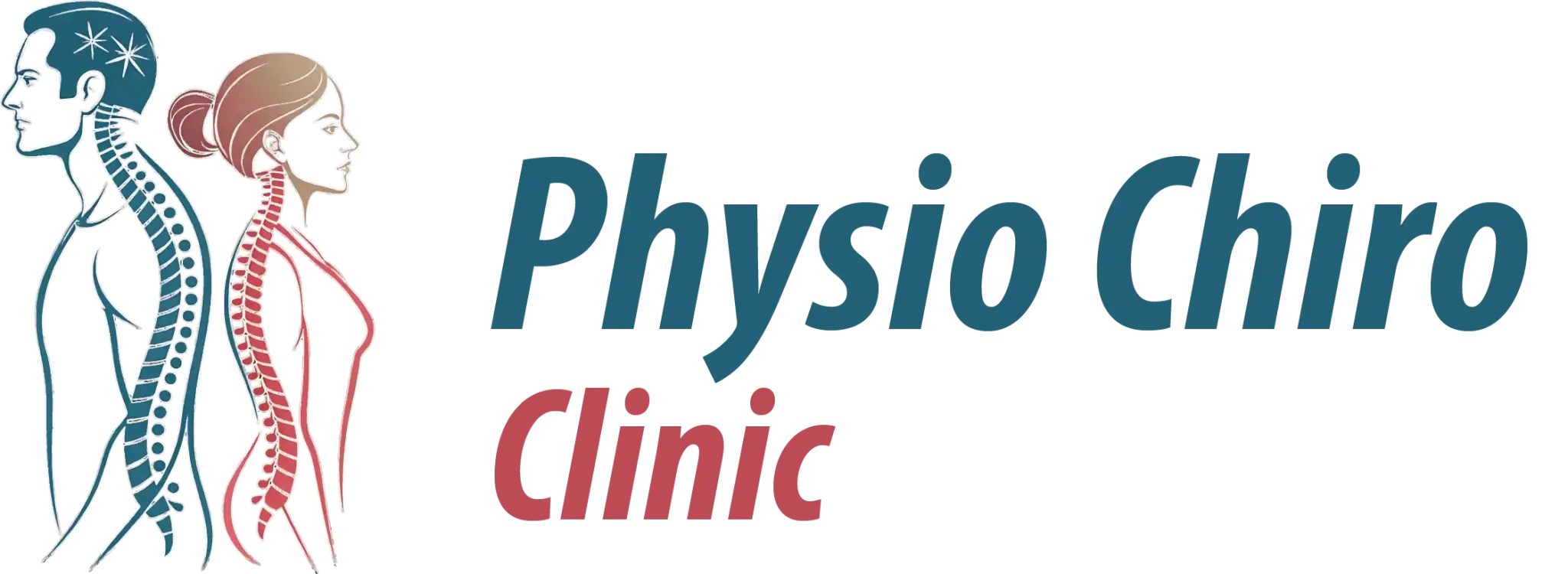Physiotherapy for Stroke We acknowledge that physiotherapy is essential for stroke recovery, as it helps improve strength, mobility, and overall functionality. Tailored therapy programs focus on individual needs, addressing challenges like hemiplegia and enhancing motor skills. Our approach promotes neuroplasticity, enabling the brain to adapt after a stroke. We also emphasize the importance of education, support groups, and collaboration with occupational therapy for a holistic recovery process. We’re committed to helping stroke survivors regain independence and improve their quality of life. By exploring further, you can discover additional strategies and insights that can aid in your recovery journey. About Our Physiotherapy and Chiropractic Services At Physio Chiro Clinic, we offer specialized physiotherapy and chiropractic services designed to support stroke recovery and enhance overall mobility. We acknowledge that stroke survivors often face challenges, including motor skills recovery and cognitive impairment, which can greatly impact their daily lives. Our team is dedicated to providing personalized stroke rehabilitation plans that address these unique needs. We focus on rehabilitation exercises that promote neuroplasticity, allowing the brain to reorganize and adapt following a stroke. Our physiotherapy and chiropractic services work in tandem to help manage any stroke complications, ensuring a holistic approach to post-stroke care. We believe that every stroke survivor deserves the opportunity to regain their independence and improve their quality of life. Understanding Stroke: Types and Causes Understanding the different types and causes of stroke is essential for effective recovery and rehabilitation, as it helps us tailor our approach to meet each individual’s needs. There are primarily two types of strokes: ischemic stroke, which occurs when blood flow to the brain is blocked, and hemorrhagic stroke, caused by bleeding in or around the brain. Additionally, a transient ischemic attack (TIA) can occur, often referred to as a ‘mini-stroke,’ where symptoms are temporary but signal an increased risk of a full stroke. Recognizing stroke risk factors is vital in prevention and treatment. Common risk factors include high blood pressure, cholesterol, diabetes, and atrial fibrillation. These conditions can greatly increase our likelihood of experiencing a stroke. Signs and Symptoms of Stroke: Early Detection Saves Lives Recognizing the signs and symptoms of a stroke can make a significant difference in outcomes, as early detection and intervention greatly increase the chances of recovery. We often refer to a stroke as a ‘brain attack,’ and understanding its warning signals can save lives. Common symptoms include facial drooping, arm weakness, and slurred speech. If we notice someone struggling with these issues, it’s essential to act quickly. Other signs to watch for are sudden vision loss or changes in balance, which could indicate a transient stroke or mini-stroke. Hypertension is a major risk factor, so being aware of our own health can help us prevent these emergencies. Stroke awareness is important, as the faster we respond to these symptoms, the better the potential outcomes. If we suspect a stroke, we should always prioritize calling emergency services without delay. Remember, time lost is brain lost. By recognizing these signs early and acting promptly, we can play a key role in improving recovery chances for ourselves or our loved ones. Let’s commit to spreading awareness and understanding of stroke symptoms in our communities. How Physiotherapy Supports Stroke Recovery Physiotherapy plays an essential role in stroke recovery, as it helps individuals regain strength, improve mobility, and enhance overall functionality after experiencing the life-altering effects of a stroke. Through tailored physical therapy programs, we can address specific needs, particularly for those facing stroke-related disabilities like hemiplegia. Our approach focuses on rebuilding muscle strength and coordination, which are often compromised due to brain damage. In rehabilitation centers, we work collaboratively with occupational therapy professionals to guarantee a holistic recovery. This multidisciplinary approach facilitates not just physical improvements, but also helps individuals adapt to daily life challenges. We also encourage participation in stroke support groups, which can provide emotional comfort and shared experiences that foster resilience. Moreover, we emphasize the importance of stroke prevention tips, educating patients on lifestyle modifications that can minimize the risk of future strokes. By integrating these elements into our physiotherapy practice, we aim to empower individuals on their journey to recovery, ultimately enhancing their quality of life and independence. Together, we can navigate the complex pathway of stroke recovery, ensuring that each person receives the thorough support they need. Rehabilitation for Ischemic and Hemorrhagic Stroke Patients Rehabilitation for patients who have experienced ischemic or hemorrhagic strokes requires a tailored approach that addresses the unique challenges posed by each type of stroke. Ischemic strokes occur due to blood clots, while hemorrhagic strokes result from bleeding in the brain, leading to complications like brain swelling. Understanding these differences helps us develop an effective rehabilitation strategy. In our rehabilitation programs, we incorporate physiotherapy to enhance mobility, balance, and overall function. We also prioritize neurological care and monitor patients for any signs of complications, such as the need for anti-clotting medication. Many of our patients face paralysis, which can greatly impact their daily lives and may require specialized therapies, including speech therapy, to address communication challenges. According to stroke statistics, timely intervention and personalized rehabilitation can greatly improve recovery outcomes. By focusing on the unique needs of each patient, we can foster an environment that supports both physical and emotional healing. Together, we aim to empower patients and their families, ensuring they receive compassionate care throughout their journey to recovery. Managing Paralysis and Hemiplegia Through Physiotherapy Managing paralysis and hemiplegia requires an extensive approach that focuses on restoring movement and improving the quality of life for affected individuals. Through targeted physiotherapy, we can facilitate rehabilitation by enhancing motor skills and promoting neuroplasticity, which is the brain’s ability to reorganize itself. By engaging in strength training, we help rebuild muscle strength and coordination, allowing our clients to regain essential mobility. Our sessions often include exercises tailored to each person’s specific needs, focusing on both active and passive movements. This not only aids recovery but also fosters a sense of accomplishment, motivating individuals to push their
Physiotherapy for Neurological Conditions
Physiotherapy for Neurological Conditions We specialize in physiotherapy for neurological conditions, understanding the profound impact these disorders have on mobility, cognition, and emotional well-being. Our personalized treatment plans are designed to enhance recovery and promote independence, whether it’s following a stroke, managing neurodegenerative diseases, or addressing balance issues. We focus on targeted exercises to boost strength and coordination, while also fostering neuroplasticity. Our compassionate approach aims to improve overall quality of life. Engaging in integrated and holistic methods, we guarantee our clients’ needs are met, and we invite you to explore how we can support your journey towards recovery. About Our Physiotherapy and Chiropractic Services At Physio Chiro Clinic, we offer extensive physiotherapy and chiropractic services tailored to meet the unique needs of individuals with neurological conditions. Our expert team understands the complexities associated with neurological rehabilitation and is dedicated to providing personalized neurological treatment plans. We focus on helping patients recover from nerve damage caused by a range of conditions, including spinal cord disorders, multiple sclerosis, and Parkinson’s disease. Our physiotherapy sessions aim to enhance mobility, strength, and overall function, empowering individuals to regain independence in their daily lives. We utilize evidence-based techniques to address specific challenges linked to each neurological diagnosis, ensuring that our approach is both effective and compassionate. In addition to physiotherapy, our chiropractic services play an essential role in managing spinal alignment and promoting overall well-being. We believe that a holistic approach is vital for those facing neurodevelopmental disorders and other neurological challenges. Together, we work closely with our patients, fostering an environment of support and understanding. Our goal is to create a thorough treatment program that not only addresses physical symptoms but also uplifts the spirit, helping individuals navigate their journey toward recovery. Understanding Neurological Conditions and Their Impact Understanding neurological conditions requires recognizing their profound impact on individuals’ physical, emotional, and social well-being. These nervous system disorders, including brain disorders like stroke, traumatic brain injury, and neurodegenerative diseases such as motor neuron disease, greatly alter lives. Conditions like cerebral palsy and dementia can lead to a range of neurological symptoms, affecting mobility, cognition, and emotional health. As a collective, we must acknowledge that individuals facing these challenges often experience difficulties with balance and coordination, leading to a decreased quality of life. The emotional toll of living with these conditions can also be considerable, as affected individuals and their families navigate feelings of frustration, isolation, and uncertainty. Moreover, the social implications can be profound; many may struggle to maintain relationships or participate in activities they once enjoyed. Understanding the multifaceted impact of these conditions helps us empathize with those affected, guiding us in our approach to support and treatment. By fostering a compassionate environment, we can better address the unique needs of each individual, paving the way for improved outcomes and enriched lives despite the challenges of neurological conditions. How Physiotherapy Supports the Nervous System Physiotherapy plays an essential role in enhancing the recovery and functioning of the nervous system for individuals with neurological conditions. By employing targeted exercises and interventions, we can help manage symptoms such as paralysis and cognitive impairments. One key aspect of our work is promoting neuroplasticity, the brain’s ability to reorganize itself, which is fundamental for recovery. In conditions like spinal muscular atrophy or sensory processing disorders, physiotherapy not only addresses physical limitations but also contributes to overall wellness. We focus on reducing neuroinflammation and enhancing the functioning of the autonomic nervous system, which plays a critical role in regulating involuntary bodily functions. Through tailored treatment plans, we facilitate movement, improve strength, and enhance coordination, fostering independence in daily activities. Our compassionate approach guarantees that individuals feel supported throughout their journey. By integrating various therapeutic techniques, we aim to empower those facing neurological challenges, helping them regain control over their lives and improve their quality of life. Ultimately, our commitment to advancing the understanding and treatment of neurological conditions allows us to provide the best possible care for our patients. Rehabilitation for Stroke and Traumatic Brain Injuries (TBI) Rehabilitation for stroke and traumatic brain injuries (TBI) is vital in helping individuals regain lost functions and adapt to their new circumstances. In our practice, we focus on a multidisciplinary approach that includes physiotherapy, neuropsychology, and the use of neuroimaging to tailor rehabilitation plans to each patient’s unique needs. After a stroke or TBI, individuals often experience challenges such as dizziness, vertigo, and neuropathy, which can hinder recovery. Our physiotherapy interventions aim to improve mobility, strength, and coordination while addressing these issues. We guide patients through exercises designed to enhance balance and reduce the risk of falls, which is essential for safety and independence. Moreover, we work closely with neuropsychologists to support cognitive rehabilitation, helping patients regain memory, attention, and problem-solving skills that may have been affected by their injuries. By fostering a supportive environment, we encourage patients to stay motivated and engaged in their rehabilitation journey. Ultimately, our goal is to empower individuals to reclaim their lives post-stroke or TBI, enhancing their quality of life and overall well-being through extensive and compassionate care. Managing Neurodegenerative Diseases with Physiotherapy Managing neurodegenerative diseases requires a proactive approach to maintain mobility, strength, and overall quality of life for those affected. In our practice, we utilize physiotherapy and chiropractic services tailored to individual needs, particularly for conditions like amyotrophic lateral sclerosis and Alzheimer’s disease. These therapies focus on preserving function and enhancing well-being. For patients with neurogenetic disorders or essential tremor, we develop personalized exercise regimens aimed at improving coordination and reducing stiffness. Our physiotherapy interventions also address chronic issues like fibromyalgia, sleep disorders, and chronic fatigue syndrome, helping individuals regain control over their bodies and daily activities. We understand that migraines can complicate these conditions, so we incorporate relaxation techniques and posture training to alleviate discomfort. By providing a supportive environment, we empower individuals to engage in their rehabilitation actively. Ultimately, our goal is to foster resilience and independence in those facing neurodegenerative challenges. By combining targeted physiotherapy with compassionate care, we
Chiropractor for Neurological Conditions
Chiropractor for Neurological Conditions We specialize in chiropractic care tailored for neurological conditions, focusing on enhancing nerve function and overall well-being. Our customized treatment plans target issues like migraines, peripheral neuropathy, and even complex disorders like Parkinson’s disease and multiple sclerosis. Using gentle adjustments, we promote spinal alignment, which can alleviate symptoms and improve mobility. We believe in a holistic approach, collaborating with specialists to support your recovery fully. Our goal is to empower you with knowledge about your condition and treatment options. Discover how our thorough care can make a difference in your journey to better neurological health. About Our Physiotherapy and Chiropractic Services At Physio Chiro Clinic, we specialize in providing extensive physiotherapy and chiropractic services tailored to address various neurological conditions. Our team understands the complexities of neurological rehabilitation, and we’re dedicated to helping patients regain their strength and mobility through targeted neurological treatment. We offer a thorough approach for individuals dealing with nerve damage, spinal cord disorders, and neuropathy. Our physiotherapy services focus on improving function and reducing pain, while our chiropractic services aim to enhance spinal alignment and overall body mechanics. Each treatment plan is customized based on a detailed neurological diagnosis to guarantee we’re addressing the unique needs of every patient. In addition to treating specific conditions, we also work with patients experiencing autonomic nervous system disorders, helping them manage symptoms effectively. We believe in fostering a supportive environment, encouraging open communication to empower our patients throughout their recovery journey. By combining our expertise in physiotherapy and chiropractic care, we endeavor to provide holistic solutions that promote healing and improve quality of life for those facing neurological challenges. Together, we can navigate the path toward recovery and well-being. Understanding Neurological Conditions and Chiropractic Care Understanding neurological conditions is essential for us as we explore how chiropractic care can effectively support recovery and enhance overall well-being. Neurological conditions encompass a wide range of nervous system disorders, including brain disorders, neuroinflammation, and peripheral neuropathy. These issues can manifest in various ways, such as migraines, vertigo, dizziness, and balance disorders. Chiropractic care addresses these conditions by focusing on the alignment and function of the spine, which is important for effective nerve function. Misalignments can exacerbate symptoms related to neurological conditions, leading to increased discomfort and dysfunction. By utilizing specific adjustments and techniques, we can help alleviate pressure on the nervous system, promoting better communication between the brain and body. Moreover, chiropractic care can enhance overall health by reducing inflammation and improving blood flow, which is significant for those dealing with neuroinflammation. As we work together, we aim to create a thorough treatment plan that fosters healing and empowers individuals to regain control over their lives. Understanding these connections allows us to tailor our approach and support our patients effectively in their journey toward recovery and improved quality of life. How Chiropractic Care Supports the Nervous System Chiropractic care plays an essential role in supporting the nervous system by ensuring proper spinal alignment, which is critical for ideal nerve function and communication throughout the body. When the spine is aligned, it helps reduce pressure on the nerves, promoting peak function. This is especially important for individuals facing neurodegenerative diseases like multiple sclerosis, Parkinson’s disease, and spinal muscular atrophy. By addressing misalignments, we can alleviate neurological symptoms such as pain, fatigue, and sensory processing disorders. For those struggling with chronic fatigue syndrome or neurodevelopmental disorders, chiropractic adjustments can improve overall wellness and enhance the body’s ability to heal. Moreover, regular chiropractic care may support the nervous system’s resilience, helping us better cope with stress and improve our quality of life. We must recognize that a well-functioning nervous system is crucial for maintaining peak health. In this way, chiropractic care not only addresses immediate concerns but also contributes to long-term neurological health by fostering better communication within the nervous system. By prioritizing spinal health, we can take significant steps toward enhancing our overall well-being and managing complex neurological challenges. Common Neurological Conditions Treated by Chiropractors Many patients seek chiropractic care for various neurological conditions, as these treatments can effectively address symptoms related to disorders such as migraines, epilepsy, and peripheral neuropathy. Among the common conditions we encounter are tension headaches and fibromyalgia, both of which can notably impact daily life. Chiropractic services can play an essential role in managing symptoms associated with seizures and dystonia. We often work collaboratively with specialists in neuropsychology and neurosurgery to create a thorough care plan tailored to each patient’s needs. Additionally, we support individuals recovering from traumatic brain injury and those living with cerebral palsy, helping to improve mobility and alleviate discomfort. Our approach emphasizes the importance of holistic care, addressing not just physical symptoms but also emotional and cognitive aspects of these neurological conditions. Chiropractic Care for Neurodegenerative Diseases Focusing on the unique challenges posed by neurodegenerative diseases, we explore how targeted chiropractic care can enhance quality of life for affected individuals. Conditions such as amyotrophic lateral sclerosis (ALS), Parkinson’s disease, and multiple sclerosis often lead to significant physical and neurological impairments. Through a personalized chiropractic approach, we can address these issues, helping to alleviate discomfort and improve functionality. Chiropractic care aims to support the nervous system and enhance communication between the brain and body. For those living with motor neuron disease or neurogenetic disorders, gentle adjustments can promote better mobility and reduce muscle tension. We’ve seen how chiropractic techniques can also aid individuals experiencing essential tremor, providing relief from symptoms that affect daily activities. Moreover, integrating chiropractic care with other treatment modalities can create a thorough support system for managing these complex neurological conditions. Our goal is to empower patients, helping them maintain independence and improve their overall well-being. By focusing on specific needs, we can make a positive impact on the lives of those affected by neurodegenerative diseases, offering hope and support in their journey. Relief for Migraines, Cluster Headaches, and Tension Headaches Relief from migraines, cluster headaches, and tension headaches can greatly enhance our patients’ quality of life, and
Chiropractor for Neck Pain
Chiropractor for Neck Pain We recognize how debilitating neck pain can be, impacting daily life and comfort. Our chiropractic care focuses on personalized treatment plans tailored to each individual’s needs. We use a variety of techniques, including spinal adjustments and rehabilitation exercises, to restore alignment and alleviate tension in the neck. Through thorough assessments, we identify underlying causes like injuries or stress-related tension. Additionally, we incorporate lifestyle advice to enhance recovery and prevent future issues. Together, we can help you move towards a pain-free life, and there’s more to discover about our approach and additional strategies for lasting relief. About Our Physiotherapy and Chiropractic Services At Physio Chiro Clinic, we specialize in providing extensive physiotherapy and chiropractic services tailored to alleviate neck pain and enhance overall well-being. Our team of neck pain specialists is dedicated to delivering effective neck pain treatment through personalized care plans. We focus on physiotherapy for neck pain, which includes targeted neck exercises designed to strengthen the surrounding muscles and improve flexibility. Understanding that each patient’s needs are unique, we provide thorough neck pain diagnosis to identify the underlying issues contributing to discomfort. Our chiropractic care for neck pain includes manual adjustments aimed at restoring proper spinal alignment and promoting ideal neck posture correction. This all-encompassing approach not only addresses immediate neck pain relief but also emphasizes long-term neck pain management strategies. Understanding Neck Pain: Common Causes and Types Neck pain can stem from a variety of common causes, ranging from poor posture and muscle strain to underlying medical conditions that require careful evaluation and management. One of the most prevalent issues we encounter is acute neck pain, often resulting from neck injuries or whiplash due to sudden movements. This type of pain can be sharp and debilitating, but it typically resolves with appropriate care. On the other hand, chronic neck pain can persist for months or even years. This may arise from conditions like cervical spondylosis, degenerative disc disease, or a herniated cervical disc. These issues often lead to persistent neck stiffness and discomfort that can seriously impact our daily lives. Additionally, forward head posture, commonly seen in those who spend long hours on computers or mobile devices, can contribute to both acute and chronic neck pain. Understanding these common causes is essential for effective management. By recognizing the underlying factors contributing to our neck pain, we can take informed steps toward relief and improved quality of life. The Role of Chiropractic Care in Relieving Neck Pain Chiropractic care offers a holistic approach to managing neck pain, addressing both the symptoms and underlying causes we often encounter in our patients. By focusing on cervical spine alignment, we can help alleviate cervical pain, reduce neck tension, and relieve discomfort caused by neck strain. Our techniques are designed to improve neck mobility and restore function, especially in cases involving a pinched nerve in the neck or cervical radiculopathy. We utilize various chiropractic adjustments and manual therapies to guarantee ideal cervical spine alignment, which is essential in reducing pain and enhancing overall well-being. Additionally, we often recommend neck strengthening exercises tailored to individual needs, promoting resilience and preventing future issues. Our holistic neck pain treatment aims not only to relieve immediate discomfort but also to empower patients with knowledge and strategies for long-term health. By combining chiropractic care for neck pain with lifestyle modifications, we foster a thorough approach to healing. We’re dedicated to guiding our patients through their recovery journey, helping them regain control over their neck health, and making sure they can enjoy a pain-free life. Diagnosing Neck Pain: Identifying the Underlying Issues Identifying the underlying issues causing neck pain is essential for developing an effective treatment plan tailored to each patient’s unique needs. We often encounter various neck pain causes, including cervical spine injury, muscle strain in the neck, and neck nerve compression. These factors can lead to symptoms such as neck tension headaches and cervical disc herniation, which may greatly impact daily life. During our assessments, we also consider conditions like cervical stenosis and the role of stress in exacerbating neck pain. Stress can create muscle tension, further complicating recovery. By understanding these underlying issues, we can recommend appropriate neck pain remedies and strategies to alleviate discomfort and promote healing. It’s important to approach neck pain recovery holistically. This means not only addressing the immediate pain but also identifying contributing factors to prevent future occurrences. By doing so, we empower our patients to take control of their health and improve their quality of life. Through thorough diagnosis, we pave the way for effective treatment, ensuring that each individual receives care that is both supportive and practical. Chiropractic Adjustments for Cervical Spine Alignment Proper cervical spine alignment is essential for alleviating neck pain and enhancing overall well-being, and we utilize targeted chiropractic adjustments to achieve this goal. These adjustments help restore balance and function in the cervical spine, effectively addressing issues like neck muscle imbalance and cervical disc bulge. When the spine is properly aligned, it can reduce the frequency and intensity of neck spasms, leading to improved mobility. In our practice, we focus on tailoring chiropractic adjustments to each individual’s needs, ensuring that we target the underlying causes of neck pain. By correcting misalignments, we not only alleviate upper back and neck pain but also contribute to long-term neck pain prevention. Incorporating ergonomic neck support in daily activities further enhances the benefits of our treatments. Additionally, we often recommend complementary therapies, such as massage therapy for neck pain, to promote relaxation and improve muscle function. This holistic approach allows us to address both symptoms and root causes, fostering a thorough recovery. By prioritizing cervical spine alignment, we empower our patients to achieve lasting relief and a healthier, more active lifestyle. Whiplash and Neck Injuries: Specialized Chiropractic Treatments Often, patients who experience whiplash or other neck injuries benefit greatly from our specialized chiropractic treatments designed to address the unique challenges these conditions present. These injuries often lead to neck pain, restricted movement, and even
Physiotherapy for Neck Pain
Physiotherapy for Neck Pain We recognize that physiotherapy plays a crucial role in managing neck pain, addressing both acute injuries and chronic conditions like cervical spondylosis. Our tailored treatment plans include exercises to enhance flexibility, reduce tension, and strengthen neck muscles. We also focus on posture correction and ergonomic support to minimize strain during daily activities. Techniques such as heat therapy and manual therapy are utilized for pain relief and improved mobility. By following a personalized approach, we empower our patients to actively manage their symptoms and promote long-term healing. There’s so much more we can share about optimizing your recovery journey with us. About Our Physiotherapy and Chiropractic Services At Physio Chiro Clinic, we offer an extensive range of physiotherapy and chiropractic services designed to effectively address neck pain and enhance overall well-being. Our team of neck pain specialists utilizes thorough neck pain diagnosis techniques to identify the root causes of discomfort. We focus on tailored physiotherapy for neck pain that includes individualized neck pain treatment plans to guarantee ideal recovery. We understand that neck pain management is multifaceted, so we incorporate various methods, including neck exercises aimed at strengthening and improving flexibility. Additionally, we emphasize the importance of neck posture correction to prevent future issues and promote cervical spine health. Our services are designed to provide neck pain relief through hands-on therapies, education, and preventive strategies. Understanding Neck Pain: Causes and Types Neck pain can arise from various causes and can be categorized into different types, each requiring a unique approach to treatment and management. Understanding these neck pain causes is essential for effective care. Acute neck pain often results from sudden injuries, such as neck strain or whiplash, which can lead to immediate discomfort and stiffness. Conversely, chronic neck pain develops over time, frequently linked to conditions like cervical spondylosis or a herniated cervical disc. Neck tension can also contribute to both acute and chronic pain, often aggravated by poor posture or prolonged periods of stress. Symptoms like neck stiffness and localized pain might indicate underlying issues that need attention. Additionally, neck injuries, whether from trauma or repetitive strain, can greatly impact our daily activities and overall quality of life. Common Conditions Linked to Neck Pain Many individuals experience neck pain due to common conditions such as muscle strain, herniated discs, and arthritis, which can greatly affect daily life and overall well-being. One prevalent issue is neck sprain, often resulting from sudden movements or overexertion, leading to muscle imbalances and discomfort. Additionally, a bulging cervical disc can press on surrounding nerves, contributing to conditions like cervical radiculopathy, which manifests as radiating pain down the arms. Degenerative disc disease is another common condition, where wear and tear on the cervical spine can lead to chronic neck pain. This can gradually develop into cervical myelopathy, where spinal cord compression occurs, causing more severe symptoms. We’re also familiar with neck tension headaches, a frequent consequence of prolonged poor posture or stress, which can exacerbate cervical pain. Understanding these conditions helps us appreciate the complexity of neck pain. By identifying the root causes, we can work towards effective physiotherapy treatments tailored to our specific needs, ultimately improving our quality of life and reducing the impact of neck pain on our daily activities. Symptoms of Neck Pain Recognizing the symptoms of neck pain is essential for understanding how these common conditions affect us and for determining the appropriate course of physiotherapy. We often experience a range of symptoms, including neck and shoulder pain, which can stem from issues like a pinched nerve in the neck or neck nerve compression. These symptoms may also radiate into the upper back, causing discomfort that can disrupt our daily lives. Many of us may notice neck spasms, which can be both painful and limiting. Additionally, we might suffer from tension-type headaches that arise from neck pain and stress, or even neck pain and anxiety, creating a cycle that can be difficult to break. It’s vital to pay attention to our cervical spine alignment, as misalignment can exacerbate these symptoms. A holistic neck pain treatment approach can be beneficial in addressing the multifaceted nature of neck pain. By acknowledging these symptoms and their impacts, we can take proactive steps toward recovery and improve our overall well-being through targeted physiotherapy interventions. Diagnosing Neck Pain: Identifying the Source Determining the source of our neck pain is vital for effective treatment and recovery, as it can arise from various underlying issues. Often, we might experience a muscle strain in the neck due to poor posture, such as forward head posture, which can lead to discomfort and limited neck mobility. Additionally, conditions like cervical disc herniation or cervical disc bulge can greatly contribute to our pain, potentially causing neck pain and headaches. When we visit neck pain clinics, healthcare professionals will conduct a thorough assessment to identify the root cause of our discomfort. This may include a physical examination and imaging tests. Once we comprehend the source, we can explore appropriate neck pain remedies, including chiropractic care for neck pain. Chiropractic adjustments may help realign the spine, alleviating pressure on affected nerves. Furthermore, addressing neck pain prevention is essential in our recovery process. We should incorporate exercises and stretches that promote better neck mobility and strengthen the surrounding muscles. By recognizing the underlying causes of our neck pain, we can take proactive steps toward effective treatment and a healthier future. Physiotherapy Techniques for Neck Pain Relief Physiotherapy offers a range of effective techniques that can help us tackle neck pain and improve our overall mobility. We can start with neck stretches, which gently enhance flexibility and reduce tension. Incorporating ergonomic neck support in our workspace can greatly alleviate discomfort caused by tech neck, allowing our posture to improve throughout the day. Neck traction is another technique that can relieve pressure on spinal nerves, promoting healing and comfort. As we progress, neck strengthening exercises can help stabilize our neck muscles, reducing the risk of future injuries. Additionally, integrating yoga for neck






